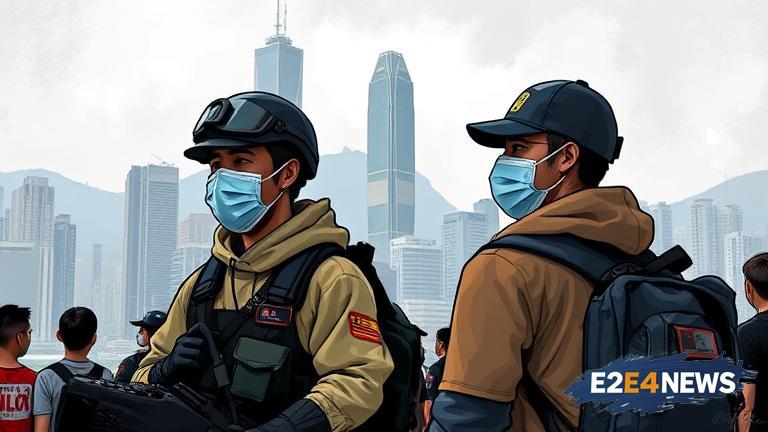In a move that has sent shockwaves through the global human rights community, Hong Kong has issued arrest warrants for 19 overseas activists accused of subversion. The warrants, which were announced on July 27, 2025, are part of a broader crackdown on dissent in the city, which has been ongoing since the passage of the national security law in 2020. The law, which was imposed by Beijing, has been used to silence critics of the government and stifle free speech. The 19 activists, who are based in countries around the world, including the United States, the United Kingdom, and Canada, are accused of violating the national security law by advocating for Hong Kong’s independence and participating in anti-government protests. The warrants are a significant escalation of the city’s crackdown on dissent, and have raised concerns about the erosion of human rights and the rule of law in Hong Kong. The activists, who have not been named, are believed to be prominent figures in the Hong Kong pro-democracy movement, and have been vocal critics of the government’s handling of the city’s affairs. The issuance of the warrants has been condemned by human rights groups and governments around the world, who have expressed concern about the implications for freedom of speech and assembly. The move is also seen as a attempt by the Hong Kong government to silence critics and intimidate others from speaking out against the government. The national security law, which was passed in 2020, has been used to arrest and prosecute dozens of pro-democracy activists, including some of the city’s most prominent figures. The law has also been used to ban pro-democracy groups and disqualify candidates from running for office. The crackdown on dissent has had a chilling effect on free speech in Hong Kong, with many people afraid to speak out against the government for fear of arrest and prosecution. The issuance of the warrants for overseas activists has also raised concerns about the extraterritorial reach of the national security law, and the implications for people around the world who may be critical of the Hong Kong government. The Hong Kong government has defended the issuance of the warrants, saying that they are necessary to protect national security and maintain public order. However, critics say that the move is a clear attempt to silence critics and stifle free speech, and that it marks a significant erosion of human rights and the rule of law in Hong Kong. The international community has been watching the situation in Hong Kong with growing concern, and many governments have expressed support for the pro-democracy movement. The United States, in particular, has been vocal in its criticism of the Hong Kong government’s handling of the situation, and has imposed sanctions on several high-ranking officials. The European Union has also expressed concern about the situation, and has called on the Hong Kong government to respect human rights and the rule of law. As the situation in Hong Kong continues to deteriorate, it remains to be seen how the international community will respond to the issuance of the warrants and the ongoing crackdown on dissent. One thing is clear, however: the move marks a significant escalation of the city’s crackdown on dissent, and has serious implications for human rights and the rule of law in Hong Kong. The pro-democracy movement in Hong Kong has been ongoing for several years, with protesters demanding greater autonomy and democracy for the city. The movement has been marked by widespread protests and clashes with police, and has resulted in the arrest and prosecution of dozens of activists. The national security law has been used to silence critics and stifle free speech, and has had a chilling effect on the city’s civil society. The issuance of the warrants for overseas activists is a clear attempt to extend the reach of the law and silence critics around the world. The move has been condemned by human rights groups, who have expressed concern about the implications for freedom of speech and assembly. The international community must continue to speak out against the Hong Kong government’s handling of the situation, and must take concrete actions to support the pro-democracy movement. This includes imposing sanctions on high-ranking officials and providing support to activists and human rights groups. The situation in Hong Kong is a clear example of the erosion of human rights and the rule of law, and must be addressed by the international community. The issuance of the warrants for overseas activists is a wake-up call for the international community, and must be taken seriously. The Hong Kong government’s actions have serious implications for human rights and the rule of law, and must be condemned in the strongest possible terms.
